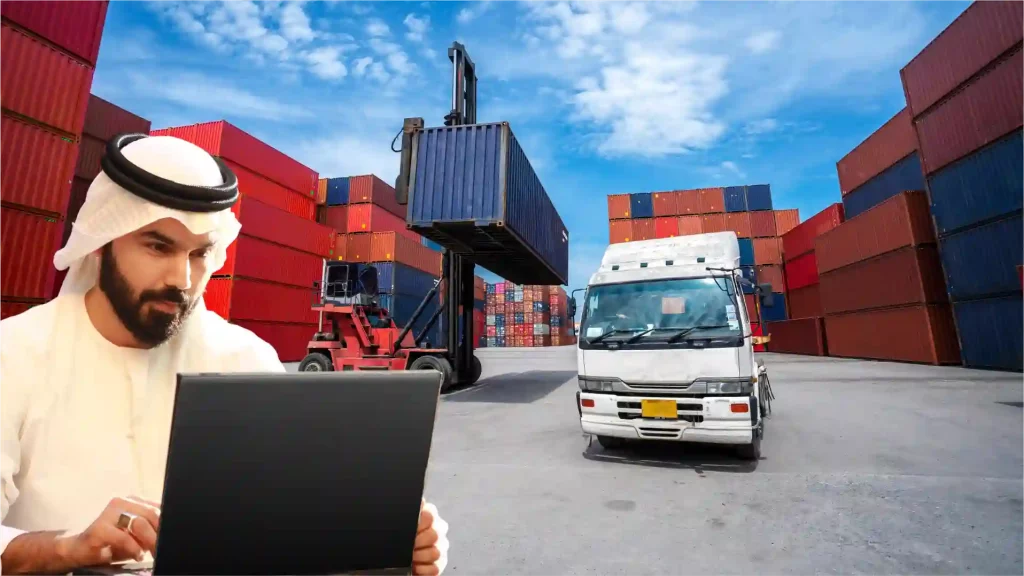Earlier today, AD Ports Group announced that an MoU has been signed with the Kuwait General Administration of Customs to establish a new virtual trade corridor between Kuwait and the UAE. The Group announced that the corridor would be under the supervision of the Department of Economic Development in Abu Dhabi.
The signing took place in Kuwait following a visit by DED’s Logistics Committee, under the patronage of Abdulwahab Al Rushaid, Minister of Finance and Minister of State for Economic Affairs and Investments – Kuwait and in presence of Dr. Matar Hamed Al Neyadi, UAE Ambassador to Kuwait. The MoU was signed by Capt. Mohamed Juma Al Shamisi, Managing Director and Group CEO of AD Ports Group, and Suleiman Abdul Aziz Al Fahd, Director of the General Administration of Customs – Kuwait.
As per the terms of the MoU, AD Ports Groups’ digital wing, Maqta Gateway will be responsible for developing the virtual trade corridor, based on its’ Advanced Trade & Logistics Platform (ATLP). Maqta Gateway will establish new policies, systems integrations and procedures to develop the trade corridor, aimed at further simplifying cross-border trade between the UAE and Kuwait.
Once the new virtual trade corridor is established, and integrated solutions implemented, customs authorities from both regions will be able to access pre-arrival information of international cargo, thereby promoting pre-clearance of goods. Cross validation of information will also be significantly faster.
The Memorandum of Understanding will also enhance speedier procedures for clearance of perishable items, reducing the amount of time spent at border controls.
Kuwait and UAE cross-border trade benefits to be enhanced
The virtual trade corridor will have enhanced security and safety benefits, improving the ability of authorities to scan any risks associated with cargo travelling between the two nations. The platform will also simplify procedure for authorization holders and reduce the inspection rate too.
Speaking at the announcement, Dr. Al Neyadi said that the UAE and Kuwait have a very big cooperation opportunity since both have extremely promising markets. He also said that he is confident that the cooperation of authorities from both countries to establish the virtual trade corridor will augment trade exchange between the two nations. The partnership will also support efforts in achieving digital transformation goals, reducing shipping and transportation costs, facilitating development of supply chains and enhancing business investment by utilizing the best digital solutions and logistics offered by the virtual trade corridor.
This was echoed by Rashid Abdul Karim Al Balooshi, Chairman of the Higher Committee of Logistics Development, who said that the MoU will set the stage for deeper cooperation between the two countries, and that the virtual trade corridor will have a significant positive impact on the economies of Kuwait and the UAE. He added that the MoU will establish Abu Dhabi as the foremost trade and logistics hub in the region.
CEO of Maqta Gateway, Dr. Noura Al Dhaheri, said that the virtual trade corridor would realize enhanced procedures, systems integrations and policies that would enhance cross-border trade of goods between the two nations.
Dr. Al Dhaheri also said that by digitizing shipment and clearance delivery through the virtual trade corridor, importers and exporters in the UAE and Kuwait would be able to derive tangible benefits, at the same time realizing greater efficiency and enhanced security.
Recent years have witnessed stupendous growth in important commodity markets between the two countries. In 2021 alone, the UAE imported more than 2 million tons of petroleum oil products valued at approximately AED 3.9 billion from Kuwait. In addition, it imported petroleum coke and tar valued at AED 213 million.
During the corresponding period in the same year, Kuwait imported almost 19 million tons of stone and pebbles from Abu Dhabi, to be used in construction. Additionally, Kuwait imported 16 tons of gold and 18 tons of jewelry valued at AED 3.16 billion and AED 2.8 billion respectively.
